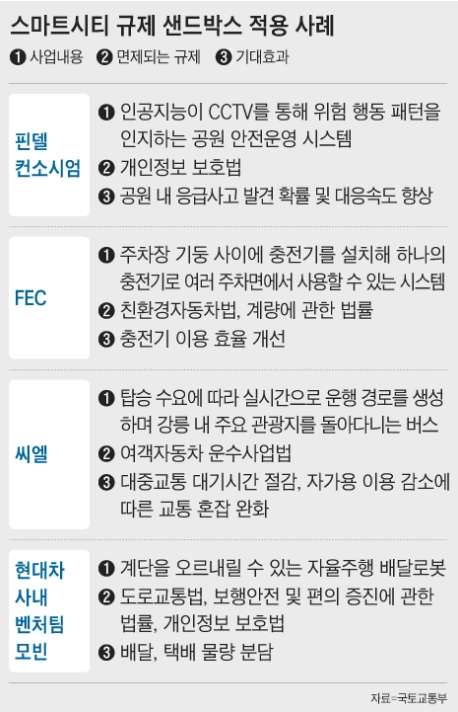Waiting time 78 minutes → 15 minutes… MOLIT 'regulatory sandbox' advances innovative technologies
If you go to Yeongjong Island in Incheon, you can see a unique bus that only picks the bus stop with passengers rather than a fixed route. The name of this bus reminiscent of a call taxi is 'I-MOD'. I stands for Incheon and MOD stands for Mobility On Demand. The key is the technology to find the optimal route by using artificial intelligence (AI) to calculate the movement lines of passengers on board and users who have applied for dispatch in real time. The average waiting time for public buses in Yeongjong Island is 78 minutes, but i-mode is only 15 minutes. The service is comparable to that of a taxi at a fare comparable to that of a bus, and is well received by local residents.

Yoon Seok-yeol The regulatory sandbox operated by the government to nurture smart city-related companies is establishing itself as a commercialization platform for innovative technologies. The regulatory sandbox is a system that helps companies increase their chances of success while operating in a restricted market for up to six years without regulation. MOLIT also provides support for demonstration projects of up to 6 million won to participating companies.
Until last year, a total of 34 projects received help from the regulatory sandbox, and in August of this year, 8 additional projects, including CL's Gangneung Demand Response Bus, were designated. It includes a self-driving delivery robot that can freely go up and down stairs, and a park safety management system using AI-based CCTV image analysis technology. All of these technologies are essential in the era of the 5th Industrial Revolution, but they have not seen the light of day because they have been blocked by various regulations such as the Road Traffic Act, Pedestrian Safety Act, and Personal Information Protection Act.
◇ Introduced 'one-stop consulting'
MOLIT plans to introduce one-stop consulting in advance so that more companies can take advantage of the regulatory sandbox. It is a service that helps government-affiliated agencies materialize business plans and review laws for small and medium-sized venture companies that lack experience in public support projects. Through communication with other ministries, we plan to support companies to solve hidden regulations that they were not aware of at once. MOLIT is also promoting the revision of related laws so that a market can be formed for technologies whose safety has been verified through the regulatory sandbox.
Moon Seong-yo, head of the MOLIT Land and Urban Division, said, “We expect to be able to provide more practical and helpful services to companies through one-stop prior consulting.” We will continue our regulatory innovation efforts,” he said.



